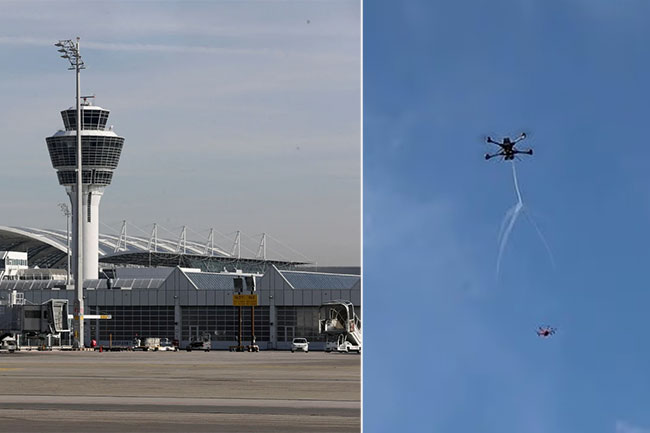Modi’s GST reforms 2.0 promise to collapse the existing four-slab structure into just two main brackets – 5% and 18%, excluding sin goods. The implications are staggering as almost 99% of goods currently in the 12% slab will transition to 5%, while 90% of items in the 28% bracket will drop to 18%, according to market estimates.
“Here too, households can expect sizable savings, owing to some higher-ticket consumption items bracketed in the 28% tier. The proposals and finer details are likely to be approved by the GST Council in early 3QFY26. The Finance Ministry has indicated Rs 50,000 crore of tax revenue impact, which appears manageable,” Motilal Oswal said in a research note.
The reforms are designed to lower retail prices by 4-5%, providing much-needed relief to household budgets while stimulating consumption across categories.
Auto sector: The biggest beneficiary
Jefferies has identified two-wheelers, small cars, and commercial vehicles as the sector’s biggest winners, with GST rates potentially dropping from 28% to 18% – a massive 10 percentage point reduction. “All the listed 2W OEMs – Bajaj, Hero, TVS and Eicher – should be beneficiaries of this cut,” Jefferies noted, highlighting the sector’s uniform benefit potential.
Maruti emerges as the standout winner in passenger vehicles. “Maruti should be the biggest beneficiary of this potential cut” for small cars currently taxed at 29-31%, Jefferies said. The brokerage also sees Maruti benefiting from potential hybrid vehicle rate cuts.
Commercial vehicle makers Ashok Leyland, Tata Motors, and Eicher are positioned to gain from the 28% to 18% rate reduction, while tractor manufacturers Mahindra and Escorts could see rates drop from 12% to 5%.
Cement: Rs 20,000-25,000 crore revenue impact
The cement sector faces a potential game-changer with GST rates dropping from 28% to 18%. Jefferies estimates this could result in a revenue impact for the government of Rs 200-250 billion.
“A key sentiment positive for the sector; lower GST from 28% to 18% can lead to 7.5%/8% lower prices,” Motilal Oswal said, identifying Ultratech and JK Cement as key beneficiaries.
For real estate developers, cement cost savings could translate to “40-50bps margin improvement” as cement constitutes 4-5% of house prices in top cities.
Consumer & durables: Broad-based benefits
Air conditioners emerge as major winners with rates potentially dropping from 28% to 18%. Jefferies specifically named Voltas, Blue Star, and Amber as positive beneficiaries, while Motilal Oswal highlighted how “Havells also benefits as ~24% of its topline comes through Lloyd’s.”
In consumer staples, companies like Dabur and Emami could benefit as “most Ayurveda products are in the 12% tax bracket which could likely go down to 5%,” Jefferies noted.
Banking & financials: Indirect beneficiaries
Banks stand to gain from increased consumption and credit demand. Motilal Oswal expects “household confidence and demand for debt to increase, driving credit growth into double digits in 2HFY26” with ICICI Bank, HDFC Bank, and IDFC First Bank as key beneficiaries.
“EMI obligation for consumer durables should reduce, benefitting NBFC lending in this segment,” the brokerage said, specifically naming Bajaj Finance.
Sectoral rotation: Consumption over capex
Emkay Global sees the reforms strengthening the sectoral rotation theme consumption over capex with potential CPI inflation easing by 50-60bps over a year.
However, the brokerage warned: “The net impact on aggregate demand will hinge on how the government offsets the resulting revenue loss. If fiscal targets are to be maintained, this gap is likely to be bridged by reducing other expenditures.”
List of stocks likely to benefit from GST rate cut:
Across sectors, brokerages have identified over 40 stocks as potential beneficiaries:
Autos: Maruti, Tata Motors, Ashok Leyland, Bajaj, Hero, TVS, Eicher, Mahindra, Escorts
Consumer & Durables: Voltas, Havells, Blue Star, Amber, Whirlpool, HUL, Britannia, Dabur, Emami, ITC, Varun Beverages, Patanjali Foods
Cement: Ultratech, JK Cement
Banking/Finance: ICICI Bank, HDFC Bank, IDFC First Bank, Bajaj Finance
Insurance: Niva Bupa, Max Life, HDFC Life, Star Health
Retail/Apparel: Relaxo, Shoppers Stop, Trent, Vedant Fashion, Bata, Metro
Hotels: Lemon Tree, Indian Hotels, Chalet













